Faizabad crackdown and the ongoing crisis: All that has happened so far

On Saturday, nearly three weeks after the protests began, around 8,500 armed security personnel finally confronted the protestors. Photo: OINN
(AFP/ Web Desk) - In the space of three weeks, what started as a demonstration in Islamabad turned into a national crisis igniting protests across Pakistan.
At least six people died when police and security forces tried to clear protests on Saturday and the civilian government has called for the military to intervene to restore order.
Here are some things you need to know about the current situation.
The protestors
On November 6, roughly 2,000 members of the Tehreek-i-Labaik Ya Rasool Allah Pakistan began a sit-in in Islamabad.
They are a little known hardline group led by a firebrand cleric named Khadim Hussain Rizvi who has been widely mocked for heaping abusive language on his opponents.
TLYR comes from the Barelvi sect of Islam that has strong ties to Sufism, a mystical branch of the religion that is seen as moderate.
However the execution in 2016 of Barelvi follower Mumtaz Qadri - who assassinated liberal Punjab governor Salman Taseer over his stance on the country s blasphemy laws - appears to have galvanised this group to take a more hardline stance.
Their demands
TLYR launched their sit-in after the government amended the oath that election candidates must swear. The change was called a mistake and quickly reversed.
The protestors are demanding the law minister, Zahid Hamid, resign over the amendment. Following the crackdown, the protests spread on Saturday across the country.
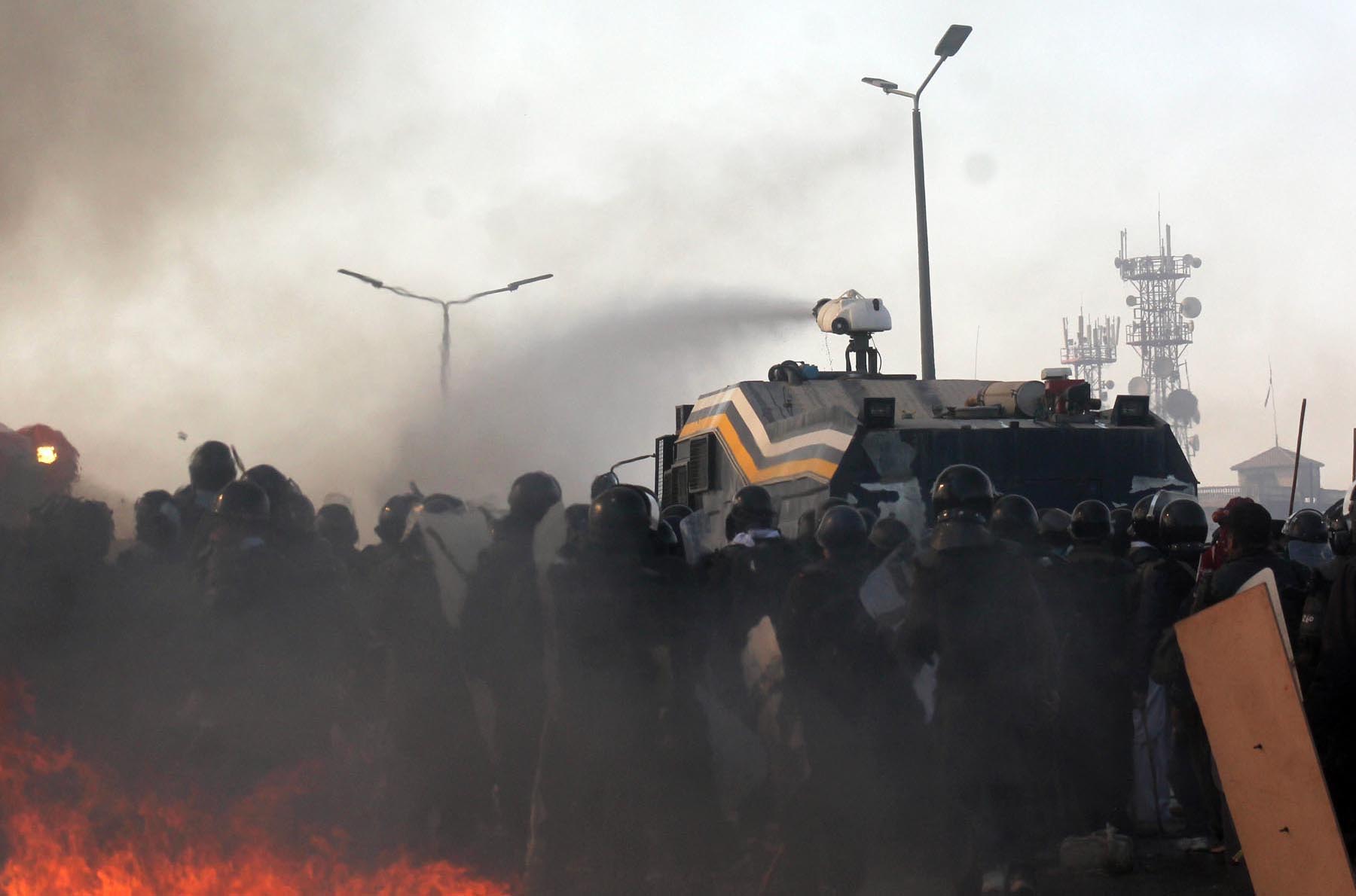
Law enforcement agencies using water cannon to disperse the sit-in protestors camped out at the Faizabad Interchange since November 8. Photo: OINN
According to their Facebook page, they seek Shariah law in Pakistan and will run in more elections, having already participated in a by-election in Lahore in September.
The onset of violence
The sit-in became increasingly frustrating for commuters trapped for hours daily by the road blockade. As the judiciary blasted officials for their inertia, conspiracy theories swirled over who was supporting the small number of protestors.
On Saturday, nearly three weeks after the protests began, some 8,500 armed security personnel, including police and the paramilitary Rangers and Frontier Corps finally confronted the protestors.
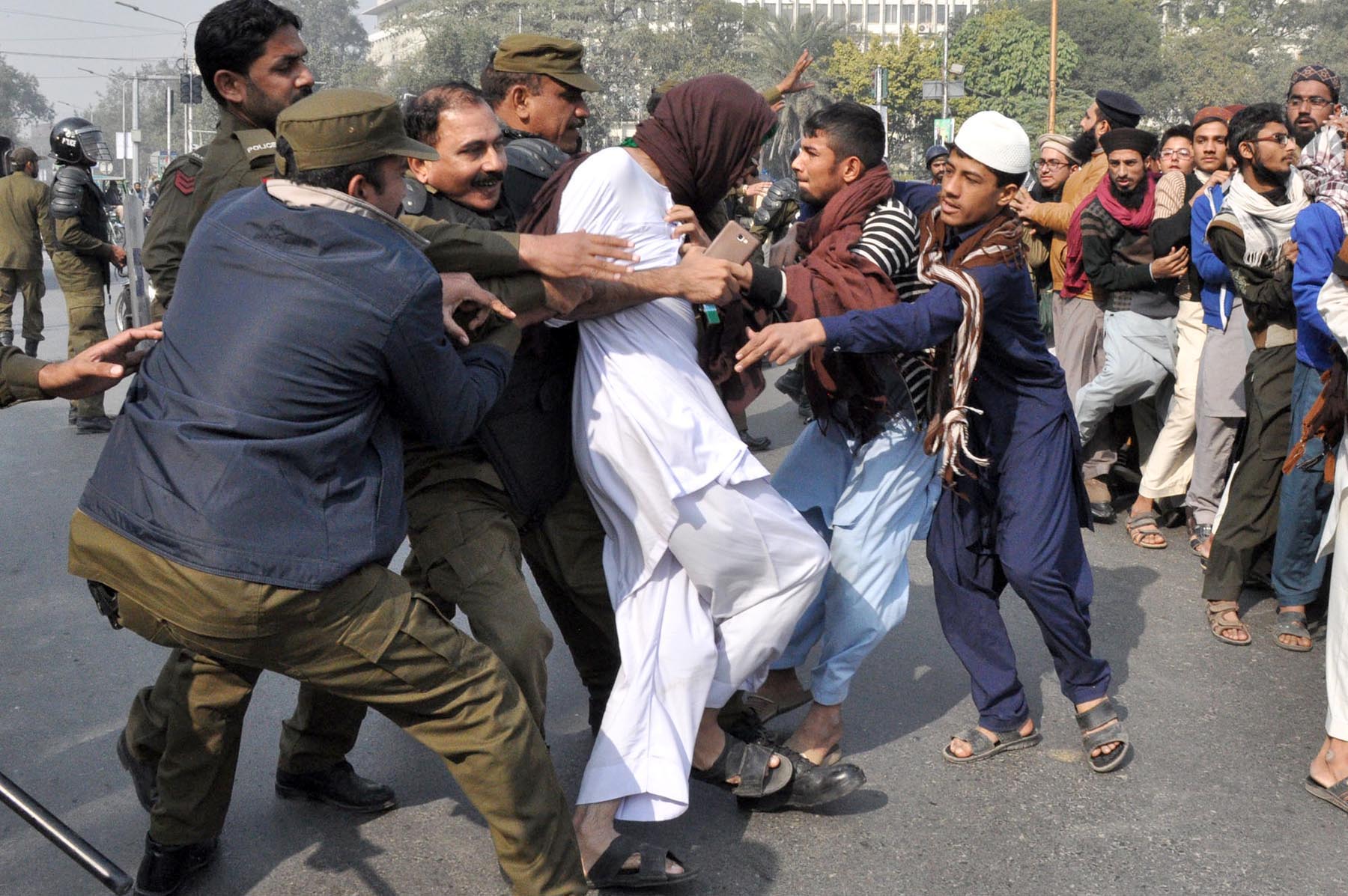
Police arrest the activists of religious parties during their protest against law enforcement agencies’ crackdown at the Faizabad Interchange. Photo: OINN
They were met with stubborn resistance, with police and protestors hurling rocks and demonstrators blocking more roads and setting vehicles alight, while calling for reinforcements.
The demonstrations also spread to Pakistan’s two biggest cities, Karachi and Lahore, as well as smaller towns countrywide before security officials were ordered to suspend the operation and the government sought help from the army.
What is the government doing?
When the sit-in first began authorities had insisted on peacefully negotiating with the protestors, as politicians eye elections in 2018.
Pakistan’s civilian governments have long pulled their punches in such situations, fearing that a crackdown on religious groups would incite blowback - as it has in the past. Critics have warned this allows extremism to flourish.
Analyst Michael Kugelman of the Wilson Centre in Washington said the success of the protest was "highly disturbing".
"It speaks to the clout and impunity enjoyed by religious hardliners in Pakistan," he said.
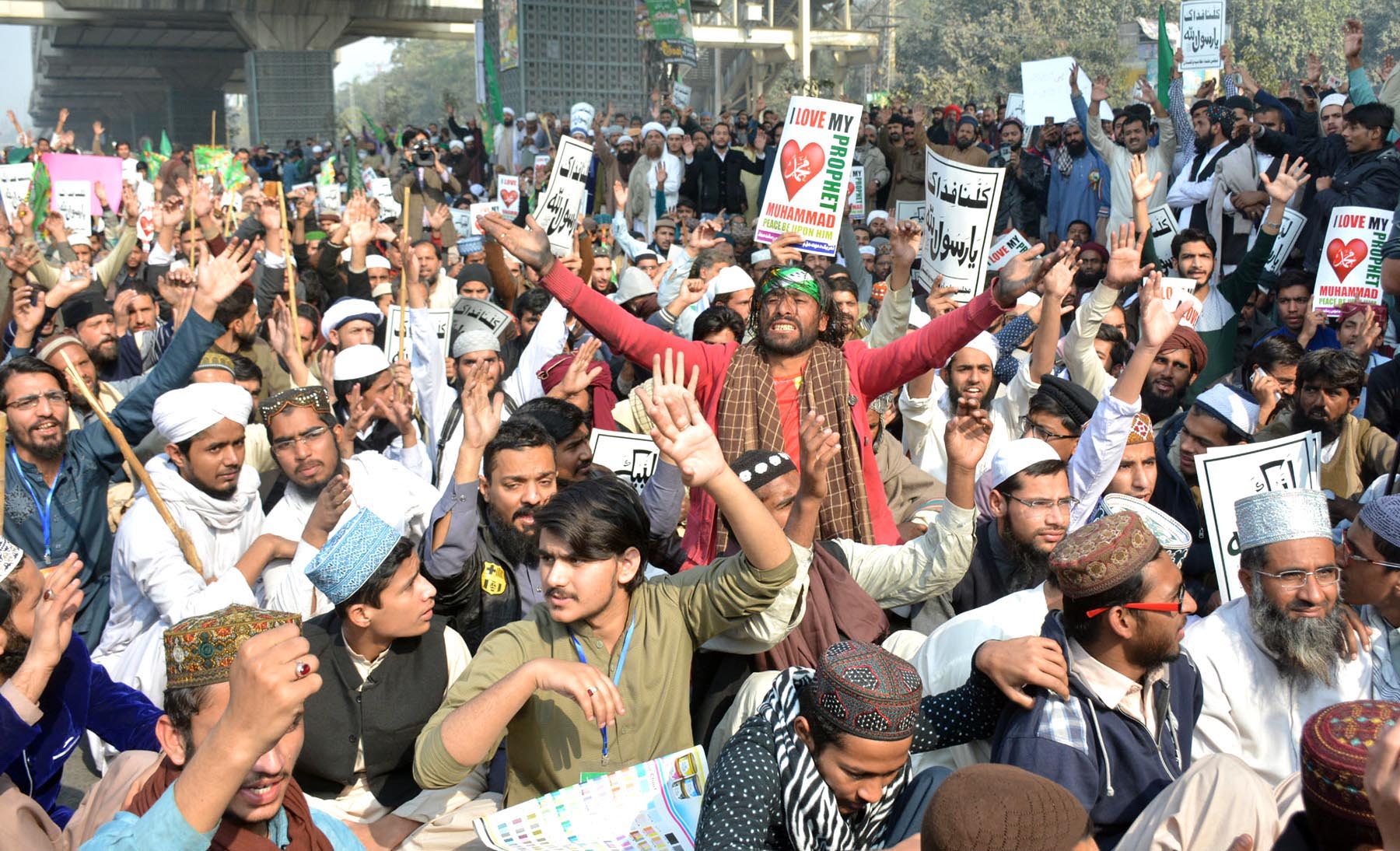
The demonstrations spread to Pakistan’s two biggest cities, Karachi and Lahore, before security officials were ordered to suspend the operation and the government sought help from the army. Photo: OINN
In a meeting on Sunday, the Chief of the Army Staff (COAS) General Qamar Javed Bajwa and Prime Minister Shahid Khaqan Abbasi deliberated over the prevalent situation following launch of a security operation against Faizabad-sit-in protestors. According to Dunay News, the COAS recommended that troops not be deployed to end Faizabad sit-in by saying that force cannot be used against fellow Pakistanis. Reportedly, the army chief has recommended PM Abbasi that the military be not used against the protestors.
Recommendation of the army chief came in after the Interior Ministry issued a notification Saturday night regarding deployment of Pakistan Army in the capital to check violence and aid government’s efforts in ending the sit-in.
Media blackout and restoration
Following the crackdown by the government on Saturday, the fallout as well as ongoing protests that spread across the country were aired by mainstream television news channels. A blanket ban was imposed on mainstream news channels by PEMRA.
The much criticised decision to halt transmission of news channels was taken under the Electronic Media Code of Conduct 2015. The decision was strongly condemned by the Pakistan Broadcasters Association (PBA) in a statement: “PBA is a signatory to the Code of Conduct that is approved by the Supreme Court and has always been willing to abide by it. The right to information is a fundamental right guaranteed by the constitution”. “The outright closure of news channels regardless of their content and conduct will not be acceptable by PBA and this action must be reversed immediately.”
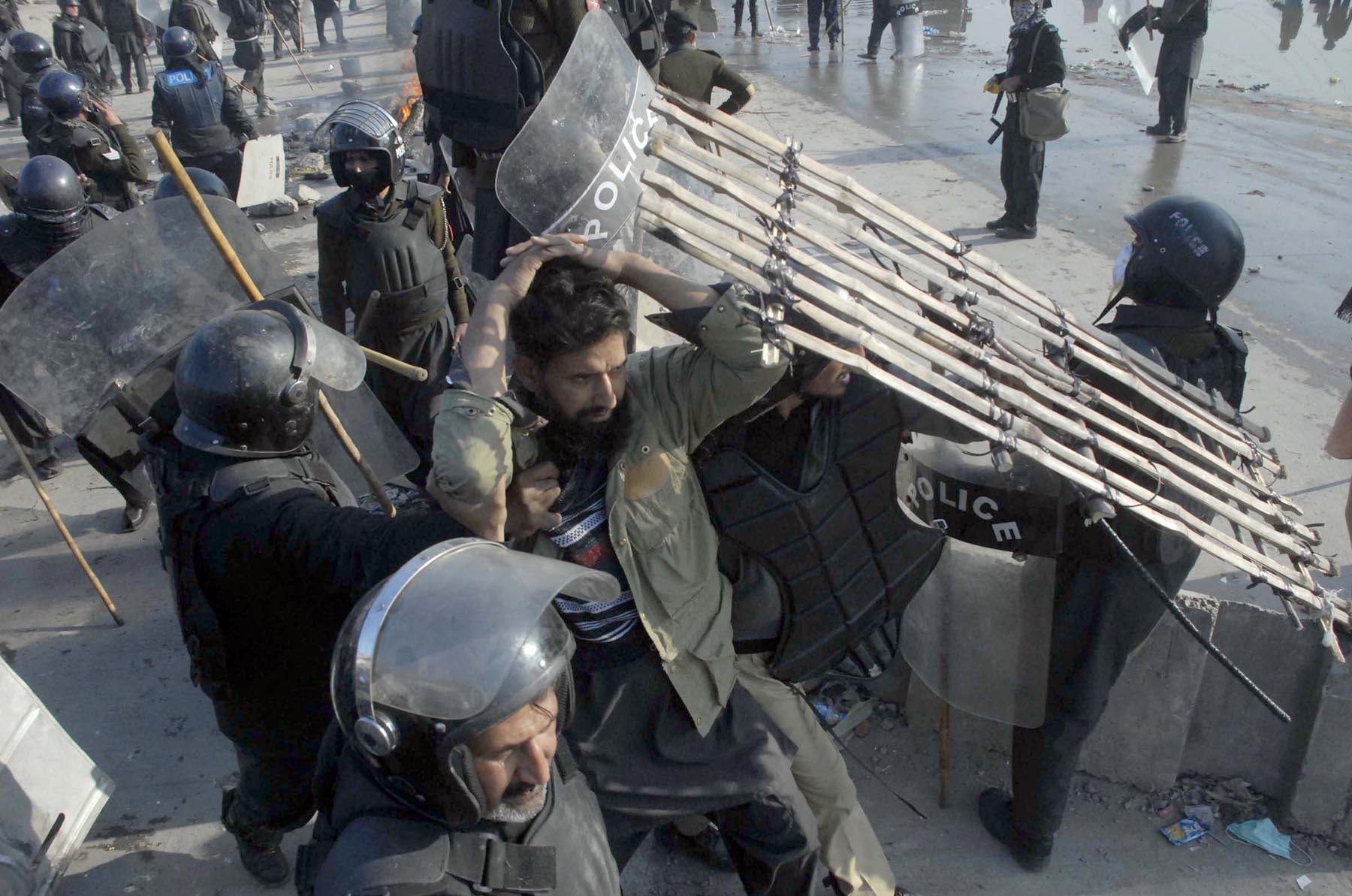
Law enforcement agencies’ personnel arresting the activists of religious groups in Lahore. Photo: OINN
On Sunday evening, following much criticism of the decision, restoration of transmission of news channels was ordered by the government.
Social media blocked
Social media remained blocked on Saturday and Sunday following the government crackdown against the protestors in Islamabad. Social networking websites including Facebook and Twitter remained inaccessible to people across the country. The decision to block social media that coincided with the halting of transmission of news channels was claimed to be linked to sharing of information regarding the Islamabad operation in Faziabad that took place on Saturday.
All social media platforms were unblocked on late Sunday evening following restoration of transmission of news channels.
Educational institutions to remain closed for 2 days in Punjab
With unrest in different parts of the country, educational institutions will remain closed on Monday and Tuesday in various cities. Punjab Education Minister Rana Mashhood Ahmad Khan announced that all private and public educational institutions will remain closed in the province following law and order situation in major cities across Pakistan. Similar decision was also announced for educational institutions in Islamabad.
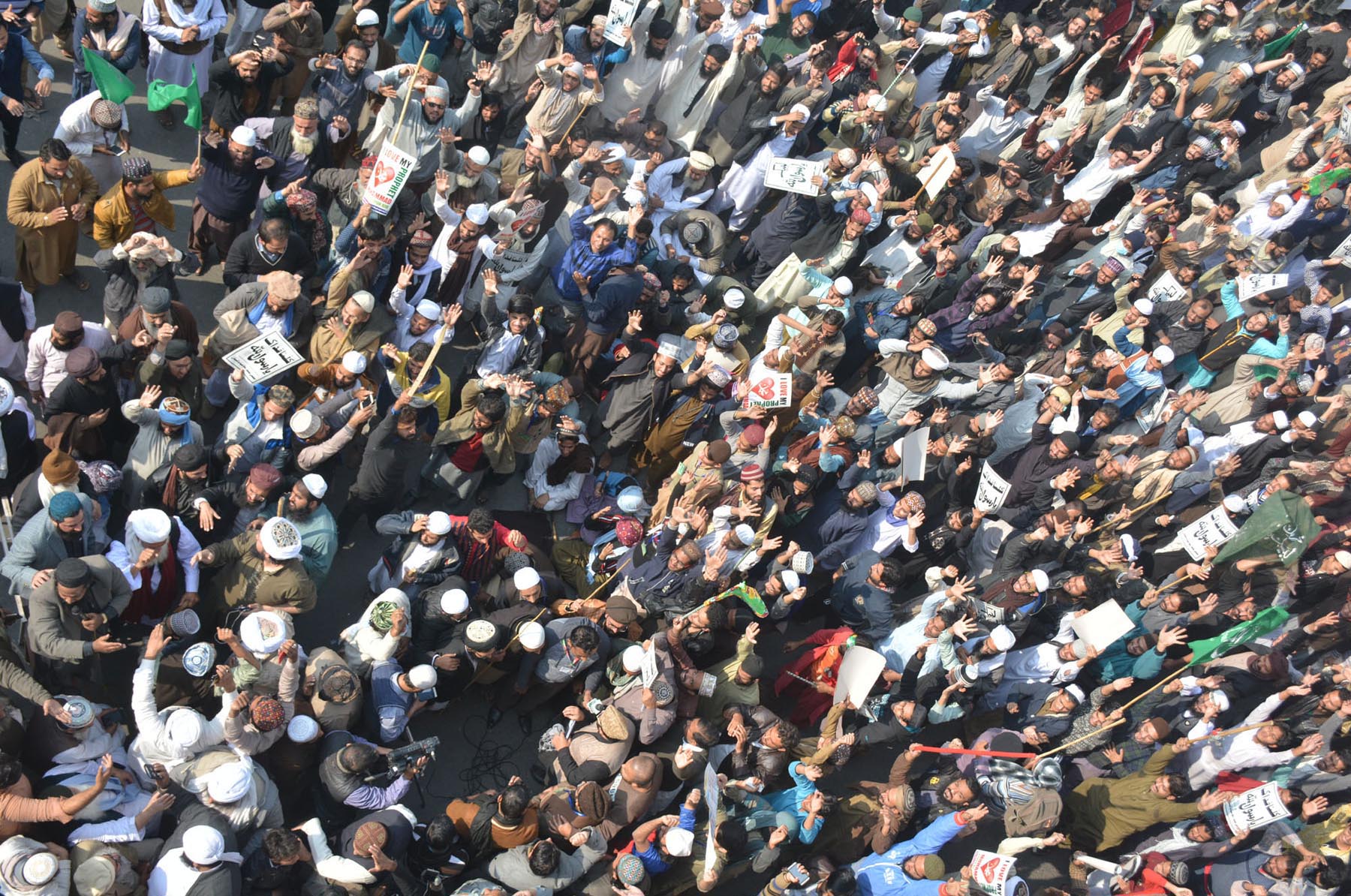
The protestors are demanding the law minister, Zahid Hamid, resign over the amendment. Following the crackdown, the protests spread on Saturday across the country. Photo: OINN
Government and protestors reach an agreement
An agreement between the protestors and the government was reached on Monday.
Federal Interior Minister Ahsan Iqbal and Federal Interior Secretary Arshad Mirza signed the agreement on behalf of the government while Allama Khadim Hussain Rizvi, Pir Afzal Qadri and Muhammad Waheed Noor signed the agreement on behalf of the protesting parties.
According to Dunya News, it was also decided in the agreement that those detained by the government from during 22-day protests would be released within three days and cases against them would also be withdrawn.
(1).jpg)
A copy of the agreement between the protestors and the government. Photo: Dunya News
Law Minister Zahid Hamid resigns
Federal Minister for Law Zahid Hamid resigned from his office on Monday according to the state-run television, PTV.
Dunya News reported that the resignation was submitted by the Law Minister in a bid to ‘resolve the current crisis in the country’. Following his resignation, Hamid has reportedly said that he has firm belief in the finality of Prophethood (PBUH) and did not believe that anything he had done was wrong.
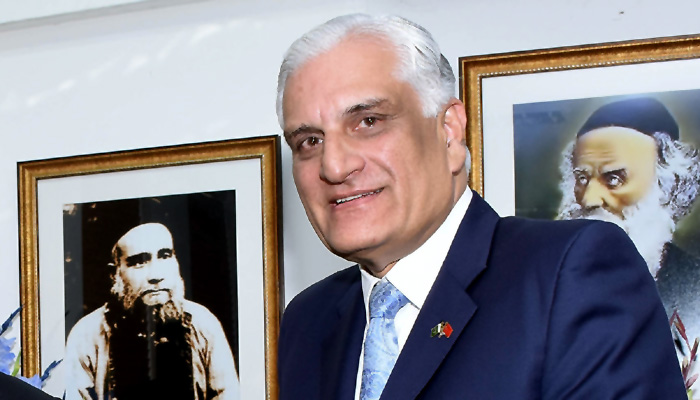
Hamid has reportedly said that he has firm belief in the finality of Prophethood (PBUH) and did not believe that anything he had done was wrong. Photo: Government of Pakistan
TLYR end 22-day long sit-in
Leaders of Tehreek-e-Labbaik Ya Rasool Allah (TLYR) announced an end to their 22-day long protest at Faizabad Interchange in Islamabad following the resignation of Law Minister Zahid Hamid.
The resignation was sent to Prime Minister Shahid Khaqan Abbasi while an agreement was also signed between the government and leaders of the protesting party, reported Dunya News.
“On the assurance of the Chief of Army Staff (COAS) General Qamar Javed Bajwa, we are calling off the sit-in,” Khadim Hussain Rizvi told a crowd of around 2,500 demonstrators, who have occupied a main highway leading to the capital.
“We have given a 12-hour deadline to the government to release all the arrested workers and meanwhile we are winding up things to call off the protest.”


